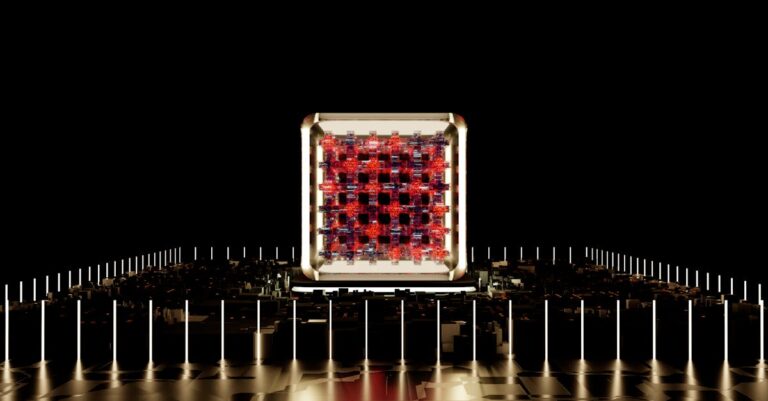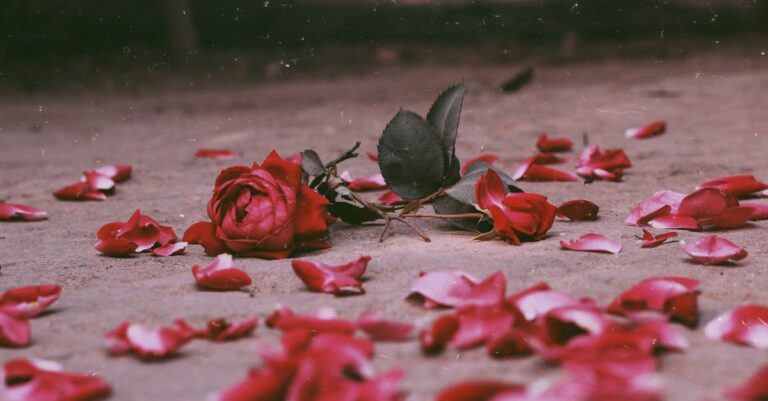
## Alternansight
The dust tasted of rust and forgotten things. Marcus coughed, the sound a dry rattle in the cavernous hall. He ran a calloused thumb across the fresco depicting the Battle of Cannae, the terracotta clay rough beneath his skin. It was a familiar scene: the Carthaginian encirclement, Roman shields splintering like dried reeds, panic tightening throats. He’s seen it countless times over twenty years guarding this auxiliary depot in Britannia – a silent sentinel amidst fading Roman glory.
But today, something shifted. Not the scene itself. The colors remained steadfast: ochre sun bleeding onto the crimson of Carthaginian armor, the dull grey of Roman despair. It was *within* it. A flicker, a heat against his temples. He smelled woodsmoke and something else…something acrid and sweet, like overripe figs baking in the sun.
“Another headache?” Flavius grunted, leaning against a pillar nearby, cleaning his pilum with methodical strokes. He’s twenty years younger, eager for a posting back to the continent.
Marcus didn’t respond. He focused, replaying his steps through the fresco’s image. The feeling returned—a wave of nausea washing over him, the faint echo of a child’s sobbing. He blinked, and the image steadied again. A Roman soldier, young, barely a man, clutching his stomach, his face contorted in silent agony. A Carthaginian spear jutted from his side.
“You alright, old man?” Flavius asked, finally looking up. “Pale as a ghost.”
“Just… the light,” Marcus mumbled, forcing his eyes away.
He spent the rest of the shift avoiding the frescos, pacing the hall like a caged animal. He felt foolish, ancient even, believing his eyes were deceiving him. But the feeling persisted—a low hum vibrating beneath his skin, a discordant symphony playing just beyond hearing.
That evening, he sought solace in the depot’s meager library. Scrolls detailing Roman military history lay scattered across a table, untouched for decades. He picked up a treatise on siege warfare, the parchment brittle and yellowed with age. As he traced a diagram of a Roman ballista, the familiar flicker returned.
This time, it was stronger. He smelled wet wool and damp earth, heard the rhythmic thud of a battering ram against wooden gates. A flash – not visual, but *felt* – the concussive force of a projectile slamming into flesh. He recoiled, dropping the scroll.
He stumbled back to his quarters, a small stone room he’s occupied for fifteen years. He sat on the rough-hewn cot, attempting to make sense of it all. Madness, surely. Old age stealing his senses.
“Think you’ve got the fever, eh?” a voice rasped from the doorway. Quintus, one of the depot’s older centurions, stood silhouetted against the dim light. His face was a roadmap of wrinkles and scars, his eyes narrowed with suspicion.
“Just…feeling unwell,” Marcus replied, keeping his voice neutral. He didn’t need Quintus’s pity or concern.
“You stare at those frescos too long, boy,” Quintus continued, his tone dismissive. “They’re just…paintings.”
“Are they?” Marcus asked, the question surprising even himself. He didn’t elaborate, simply turned back to examine his hand—pale and trembling.
The next morning, he returned to the hall with a different intention. No longer an observer, but an investigator. He approached the fresco of the Battle of Cannae again, deliberately focusing his attention on a single figure: a Roman standard-bearer, frozen in mid-fall as the banner slipped from his grasp.
He didn’t just *look* at him. He reached, extending a mental hand towards the image, focusing on the sensation of the clay’s texture. And then it happened. The world tilted.
He wasn’t looking *at* the fresco anymore. He was *in* it.
The heat of the Italian sun beat down on him, the stench of sweat and blood thick in the air. He felt the weight of a Roman shield pressing against his arm, tasted grit and dust on his tongue. He heard the screams of men, the clash of steel, the thunderous beat of Carthaginian war drums.
But it wasn’t just a visual replay. It was *felt*. He experienced the visceral terror of a young soldier facing certain death, the cold fear gnawing at his gut. He felt the sharp sting of a Carthaginian spear grazing his arm, heard the gasp of a dying comrade.
The experience lasted only seconds, then snapped back with jarring abruptness. He stood again in the depot’s hall, his legs shaky beneath him, sweat plastering his tunic to his skin.
He understood now. These weren’t just paintings. They were…residue. Emotional echoes imprinted on the clay, layering over the physical image. He was tapping into something ancient, something beyond Roman logic or understanding.
He sought out the depot’s oldest scrolls, poring over faded texts on Druidic practices and pre-Roman rituals. He found mentions of “stone memory,” the belief that certain geological formations—and painted surfaces—could retain traces of past events.
He remembered a fragment he’s read decades ago, almost dismissed as superstitious nonsense: “The rock remembers. The hand that strokes it, may feel its sorrow.”
He began experimenting, focusing his attention on different frescos. He found that certain images—particularly those depicting moments of intense suffering or trauma—were more potent than others.
The Battle of Cannae proved to be a nexus, a point of intense emotional resonance. But he found others too: the siege of Alesia, with its palpable sense of desperation and starvation; the massacre at Teutoburg Forest, a swirling vortex of fear and betrayal.
He began to notice patterns. The frescos depicting events where massive casualties occurred resonated with a greater potency, creating stronger echoes of the past. But there was more to it than just death. He felt a deep connection to places of familial bonds, the ache of grief from men separated from loved ones.
He wasn’t just seeing images anymore; he was *feeling* them, experiencing fragments of the lives lived and lost within those moments. He felt a strange kinship with these long-dead soldiers, their hopes, fears, and regrets suddenly tangible.
One evening, he found Flavius staring at the fresco of a legionary mourning his fallen son.
“You see anything strange?” Marcus asked, his voice low.
Flavius shifted uneasily. “Just… the colors seem brighter tonight.”
Marcus nodded, focusing his attention on the image. He felt a wave of overwhelming sadness wash over him—the anguish of a father losing his only child on the battlefield.
“It’s…it’s like feeling someone else’s grief,” Flavius mumbled, his face pale. “Like…a ghost.”
“They aren’t ghosts, Flavius,” Marcus corrected him gently. “They are echoes.”
He decided to confide in someone. But not Quintus, the rigid, by-the-book centurion. He sought out a local healer, a woman named Rhiannon who lived on the edge of the legion’s territory. She was rumored to possess knowledge beyond Roman understanding, a descendant of pre-Roman Druids.
“You see things on the walls,” Rhiannon said, her voice calm and measured as he recounted his experiences. She didn’t express surprise or disbelief; only a quiet, knowing acknowledgment.
“What are they?” Marcus asked, desperate for answers.
“The stones remember,” Rhiannon replied, echoing the ancient text he’s discovered. “They absorb impressions; emotional residue left behind by great suffering, intense joy…strong bonds.”
“But how can I tap into it?”
Rhiannon smiled, a flicker of ancient wisdom in her eyes. “It is a forgotten art,” she said. “A reflex, unaligned from the Roman mind – a skill lost to your people.” She explained how pre-Roman peoples developed techniques to sense these echoes, using rituals and music to amplify the residual energies.
“It’s like…a muscle,” she continued, ” that has to be trained.”
Marcus spent weeks studying with Rhiannon, learning the ancient practices. She taught him breathing exercises to clear his mind, meditation techniques to focus his senses, and rhythmic chants designed to resonate with the stone’s memory.
He realized that the “frescos” weren’t just records of Roman history; they were a vast, unspoken library of human experience. A silent testament to the suffering and resilience of countless generations.
One day, while focusing on a fresco depicting a Roman legionary embracing his family before departing for war, he felt an overwhelming sense of love and longing. He saw not just the image on the wall, but the faces of the legionary’s wife and children, their smiles warm and inviting.
He felt a sudden connection to the legionary—a shared sense of love, loss, and hope. He realized that these echoes weren’t just about suffering; they were about the full spectrum of human emotion.
He began to see patterns – not just in the frescos, but in the very landscape itself. Certain locations—ancient burial grounds, sacred groves, sites of significant battles—vibrated with a stronger resonance than others.
The land itself remembered.
He understood now that the Romans were not the sole inheritors of history; they merely suppressed a deeper, more intuitive understanding. He was becoming a bridge between worlds—a conduit for the voices of the past, a listener to the silent symphony of time.
The Roman empire crumbled around them, but the stones remembered. And Marcus, the elderly legionary, was beginning to hear their story. A story far older—and more profound—than Rome itself.
He felt a new sense of purpose, a responsibility to protect this forgotten knowledge and share it with the world. He was not just an observer anymore; he was a guardian, a protector of memories—a living testament to the enduring power of human connection.
He looked at Flavius, who stood nearby, watching him with a mixture of awe and confusion.
“Are you alright?” Flavius asked, his voice barely a whisper.
Marcus smiled faintly and turned back to the fresco, his gaze fixed on the intertwined figures of a Roman soldier and his family.
“I’ll be alright,” he said, looking toward the future with a newfound clarity. “We all will be.”


